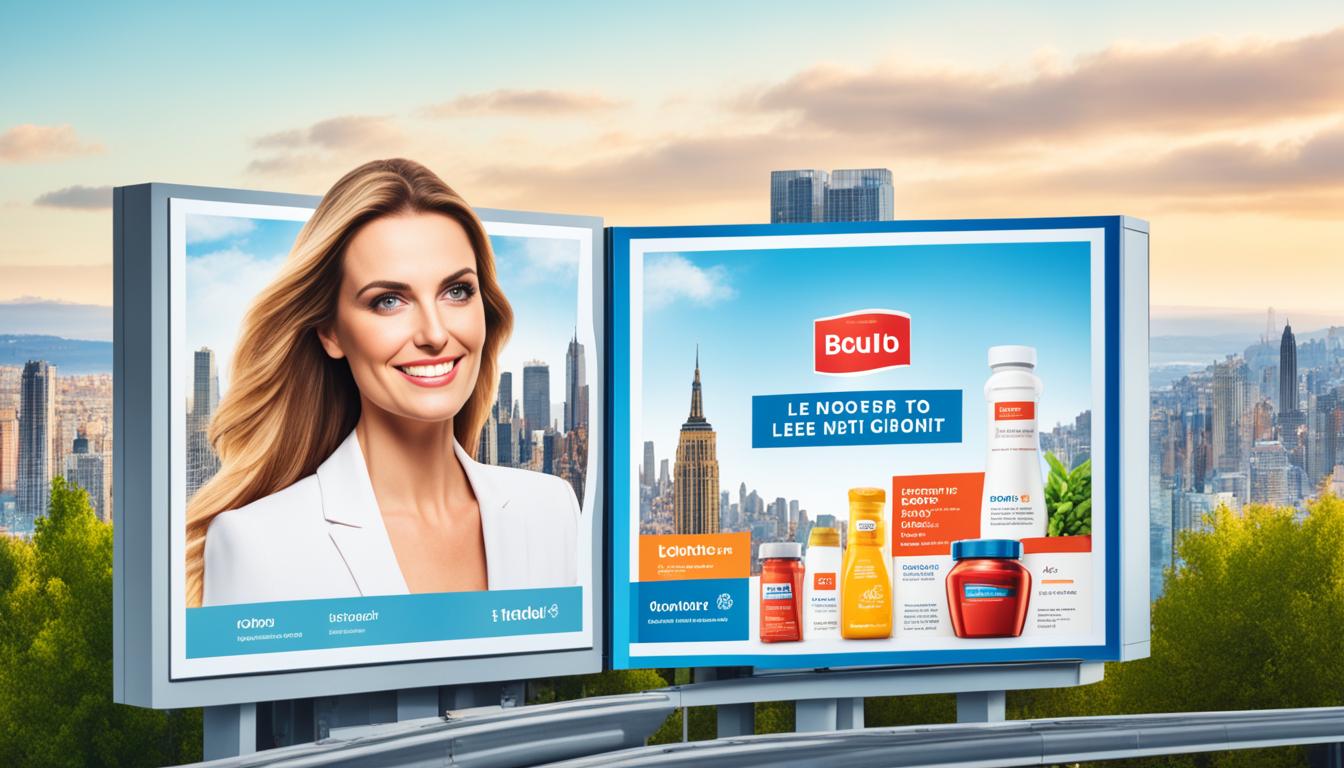Ambush marketing, also known as coat-tail marketing or predatory ambushing, is a marketing strategy where a brand hijacks or coopts another advertiser’s campaign to raise awareness of their own company or brand. This tactic is often used in the context of event sponsorships. One famous example of ambush marketing is the feud between MasterCard and Visa during the 1992 Winter Olympics. Visa, the official credit card sponsor of the games, ran aggressive TV commercials suggesting that American Express cards were not accepted at the Olympics, leading to a retaliatory campaign by American Express. Ambush marketing can be a clever and creative way for brands to gain attention and disrupt their competitors.
Key Takeaways:
- Ambush marketing is a strategy where a brand hijacks or coopts another advertiser’s campaign to raise awareness of their own brand.
- It is often used in the context of event sponsorships.
- A famous example of ambush marketing is the feud between MasterCard and Visa during the 1992 Winter Olympics.
- Ambush marketing can be a clever and creative way for brands to gain attention and disrupt their competitors.
- However, it also carries legal and ethical risks.
Advantages of Ambush Marketing
Ambush marketing techniques offer brands unique advantages, allowing them to stand out and leave a lasting impression on consumers. Compared to traditional advertising campaigns, ambush marketing provides a greater level of creative freedom and flexibility, giving brands the opportunity to showcase their creativity and innovation. By utilizing unconventional strategies and unexpected tactics, ambush marketing campaigns have the potential to capture the attention of a wider audience.
One significant advantage of ambush marketing is its ability to challenge the dominance of official sponsors. By leveraging clever strategies, brands can create associations with popular events and effectively change consumer perceptions. This approach allows brands to gain exposure and compete with larger, more established companies at a fraction of the cost.
Ambush marketing can also be particularly advantageous for startups and lesser-known brands striving to make a name for themselves. By strategically implementing ambush marketing techniques, these brands have the opportunity to generate buzz and gain recognition in an otherwise crowded marketplace.
However, it is important to note that ambush marketing campaigns may present certain challenges. Measuring the return on investment (ROI) of such campaigns can be complex due to their unconventional nature and the need for quick responses and detailed planning. Furthermore, ambush marketing strategies can be perceived as unfair and deceptive, as they often infringe on the rights of official sponsors and event organizers.
Disadvantages of Ambush Marketing
While ambush marketing can be effective, it also has some drawbacks. One of the main challenges is calculating the return on investment (ROI) of ambush marketing campaigns. These campaigns often rely on time and space constraints, making it difficult to accurately measure their impact. Furthermore, ambush marketing may violate the rights of official sponsors and partners of an event, leading to legal issues. In the sports industry, there are specific regulations in place to protect exclusive sponsorships and intellectual property rights, which can restrict and hinder the use of ambush marketing tactics.
Overall, while ambush marketing offers certain advantages, such as creative freedom and the ability to challenge official sponsors, it also carries legal and ethical risks that brands must consider. It is essential for businesses to assess the potential impact of ambush marketing on their reputation, relationships with stakeholders, and their standing within their industry before implementing such strategies.
Real-World Examples of Ambush Marketing
Ambush marketing has been employed by various brands to disrupt their competitors’ campaigns and gain attention in a crowded marketplace. Let’s explore some notable instances of ambush marketing:
BMW vs. Audi Billboard Battle
In Santa Monica, BMW and Audi engaged in a memorable billboard battle that captured the attention of passersby. The two car manufacturers used witty and provocative ads to challenge each other’s campaigns, creating a competitive and attention-grabbing spectacle.
Paddy Power’s London 2012 Olympics Campaign
During the London 2012 Olympics, Paddy Power, an Irish gambling chain, launched an ambush marketing campaign that grabbed headlines. The brand claimed to be the “Official sponsor of the largest athletics event in London,” cleverly positioning itself as a prominent player in the Olympic Games despite not being an official sponsor.
Samsung’s Ambush Marketing Tactics
Another prime example of ambush marketing occurred during the launch of Apple’s iPhone 4S. Samsung, known for its rivalry with Apple, set up a pop-up store near an Apple store in Sydney and sold its competing devices at a significantly lower price, capitalizing on the buzz surrounding the iPhone launch. This strategic move demonstrated Samsung’s ability to create attention and divert customers’ attention from their competitor.
These real-world examples showcase how ambush marketing can help brands gain a competitive edge over their rivals and attract the spotlight. Compared to traditional marketing tactics, ambush marketing enables brands to think creatively and generate excitement and engagement among consumers.
Now, let’s take a closer look at the different types of ambush marketing.
Types of Ambush Marketing
Ambush marketing can be categorized into two main types: direct marketing and indirect marketing. These types of marketing strategies allow brands to gain exposure and association with an event without being an official sponsor or partner.
Direct Ambush Marketing
Direct ambush marketing involves aggressive tactics that a brand uses to associate itself with an event without official sponsorship. Some examples of direct ambush marketing techniques include:
- Attacking a competitor’s campaign or event sponsorship
- Sponsoring individual players or teams participating in the event
- Infringing on trademarks or logos associated with the event
Direct ambush marketing aims to disrupt the marketing efforts of competitors and create brand association with the event, even without official affiliation.
Indirect Ambush Marketing
Indirect ambush marketing focuses on aligning a brand with an event through suggestions or references, rather than directly using trademarks or logos associated with the event. Examples of indirect ambush marketing include:
- Running advertisements that allude to the event or its participants
- Creating content or campaigns that indirectly reference the event
- Using event-related keywords or hashtags in online marketing efforts
Indirect ambush marketing aims to generate exposure and brand association with the event without infringing on trademarks or violating regulations.
Both direct and indirect ambush marketing techniques aim to generate exposure, create brand association, and challenge the dominance of official sponsors, but they do so in different ways.
Legal Considerations of Ambush Marketing
Ambush marketing is a marketing strategy that can raise legal concerns due to its potential infringement on trademarks, intellectual property rights, and unfair competition laws. Brands engaging in ambush marketing must be cautious to avoid using another brand’s trademarks without permission, engaging in misleading advertising, or participating in deceptive behavior, as these actions can lead to legal consequences. To protect their rights and combat ambush marketing, event organizers and official sponsors often implement various measures.
- Strict control over tickets: Event organizers may enforce strict control over ticket sales to regulate access and minimize unauthorized brand promotions.
- Exclusive advertising space: Official sponsors may secure exclusive advertising space to ensure their brand presence isn’t overshadowed by ambush marketing campaigns.
- Public education campaigns: Event organizers may launch public education campaigns to create awareness about the negative impact of ambush marketing, protecting the integrity of the event and official sponsors.
- Legal teams ready to take action: Event organizers and sponsors often have legal teams prepared to take legal action against ambush marketers, reinforcing the importance of adhering to legal guidelines.
It is crucial for brands engaging in ambush marketing strategies to understand and comply with relevant laws and regulations. By doing so, they can mitigate the risk of legal disputes and ensure their marketing campaigns remain lawful and ethical.
Understanding and respecting ambush marketing laws is essential for brands in order to avoid legal consequences and maintain ethical marketing practices.
Impact of Ambush Marketing on Events and Sponsors
Ambush marketing can have a significant impact on both events and sponsors, with both positive and negative consequences. It is essential to understand the various implications to make informed decisions about implementing ambush marketing strategies.
Positive impact on events and sponsors
- Ambush marketing challenges the dominance of official sponsors and creates healthy competition. This competition can lead to lower prices and more options for consumers, ultimately benefiting them.
- Ambush marketing campaigns generate excitement and entertainment value, making events more memorable for attendees. They add an unexpected element that can enhance the overall experience.
Negative impact on events and sponsors
- Ambush marketing can dilute the value of official sponsorships and the significant investments made by sponsors. When other brands covertly associate themselves with an event, the exclusivity and prestige associated with official sponsorship may be diminished.
- A strong ambush marketing campaign can weaken an event organizer’s bargaining position when negotiating sponsorship deals. Sponsors may question the effectiveness of sponsorship investments if their association with an event is not exclusive.
- Ambush marketing activities can hinder an event organizer’s ability to secure future sponsors. Brands may become hesitant to invest in sponsorships if they perceive a high risk of ambush marketing and a lower return on investment.
The overall impact of ambush marketing depends on the specific circumstances and execution of the campaigns. While it can bring benefits such as increased competition and excitement, it also carries risks that could potentially harm the relationships between events and official sponsors.
Strategies for Event Organizers and Sponsors to Combat Ambush Marketing
Ambush marketing can pose significant challenges for event organizers and sponsors, but there are strategies they can employ to combat this practice. By implementing the following techniques and adhering to relevant laws, event organizers and sponsors can mitigate the impact of ambush marketing and protect the integrity of their official sponsorships.
1. Maintaining Strict Control over Tickets
One effective strategy is to maintain strict control over ticket distribution and access to the event. By implementing measures such as personalized ticketing, barcode scanning, and strict entry protocols, event organizers can ensure that only legitimate ticket holders can attend. This reduces the likelihood of unauthorized marketers gaining access to the event and conducting ambush marketing activities.
2. Securing Exclusive Advertising Space
Event organizers should secure exclusive advertising space within the event venue and its immediate surroundings. By partnering with reputable advertising agencies and negotiating exclusive contracts, organizers can limit the presence of unauthorized advertisements and prevent competing brands from hijacking the event’s marketing space.
3. Launching Public Education Campaigns
Event organizers can proactively address ambush marketing by launching public education campaigns to raise awareness among attendees and the general public. These campaigns can highlight the importance of supporting official sponsors and the negative consequences of supporting unauthorized brands. By educating the public, organizers can foster a sense of loyalty to the official sponsors and discourage engagement with ambush marketing campaigns.
4. Offering Unique Benefits to Official Sponsors
Event organizers can incentivize brands to become official sponsors by offering unique benefits and value propositions that are difficult for unauthorized marketers to replicate. This can include exclusive branding opportunities, access to VIP areas, prominent signage, and priority advertising slots. By providing distinctive benefits, organizers can strengthen the appeal of official sponsorship and discourage ambush marketing.
5. Active Monitoring and Addressing of Ambush Marketing Activities
Event organizers should actively monitor and promptly address any instances of ambush marketing. This can involve establishing dedicated teams to monitor social media, advertising platforms, and other channels where ambush marketing may occur. If unauthorized marketing activities are identified, event organizers should take immediate legal action if necessary, ensuring that ambush marketers are held accountable for their actions.
| Ambush Marketing Techniques | Impact |
|---|---|
| Unauthorized Brand Activations | Undermines the investment of official sponsors, dilutes brand value |
| Affiliate Marketing Campaigns | Confuses consumers, diverting attention from official sponsors |
| Guerrilla Marketing Stunts | Creates buzz and attention, but can be seen as disruptive and unethical |
| Covert Sponsorships | Attempts to associate with the event without disclosing the nature of the relationship |
Conclusion
Ambush marketing is a controversial and competitive marketing strategy that involves hijacking or coopting another advertiser’s campaign to raise awareness of a different brand. This tactic offers brands the opportunity to tap into the creativity and flexibility of their marketing campaigns, challenging the dominance of official sponsors in the process.
However, the use of ambush marketing also comes with legal and ethical risks. It can infringe on trademarks, intellectual property rights, and unfair competition laws. Brand owners must carefully consider these factors and ensure compliance with relevant laws and regulations to avoid legal consequences.
While ambush marketing can be an effective way to generate exposure and undermine competitors, event organizers and sponsors must be vigilant in protecting their rights and combatting ambush marketing activities. By implementing strategies such as maintaining strict control over tickets, securing exclusive advertising space, and actively monitoring and addressing ambush marketing attempts, event organizers can safeguard the integrity and value of their official sponsorships.
In conclusion, ambush marketing is a strategic tool that brands can utilize to stand out and disrupt their competitors’ campaigns. However, it is essential for brands to weigh the advantages and disadvantages, consider the legal implications, and make informed decisions when implementing ambush marketing strategies.


